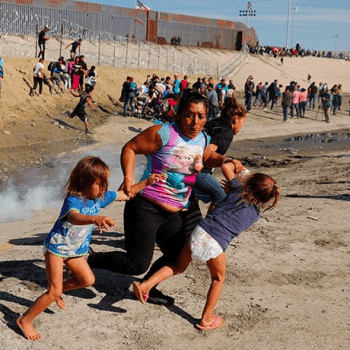The weather in San Francisco abruptly changed two days ago. It went from being sunny and in the 70’s to non-stop mist, wind and London-worthy fog. Yesterday afternoon I walked to my favorite cafe to read a book, and instead of walking back home, I took the bus, because the wind gusts were so strong they almost blew me over.
This morning, the mist was still falling. The fog hung so low that the usual landmarks I can see from my place — the downtown skyline and the Sutro Tower on Twin Peaks — were completely obscured.
Instead of hunkering down in my pajamas and writing (like I usually do on cloudy days), I bundled up and trudged across the neighborhood to a friend’s house to participate in a tea tasting. My friend actually owns a tea company, and he gets sustainably-sourced teas from farmers around the world, so it’s a real treat when he shares his stash.
By the time I got to his house, my wrap was damp and my glasses were foggy. Five of us sat cross-legged on the living room floor around a low round table. Over and over, he heated up the electric kettle, poured boiling water into a tiny tea pot to steep the leaves, then strained out the leaves and poured tea into our delicate china cups.
There was roasted green tea from Japan, an oolong from China, a blend of black teas from India, and an aged puer from a province near Tibet.
We sipped the fragrant, nuanced, warm teas for hours, as the fog lingered on the skyline and the mist turned into a driving rain.
When the tea tasting was finished, I bundled up and stepped out onto the wet, windy, empty street.
The contrast was striking. A warm living room with gently steeped tea, the hospitality of an attentive friend filling my cup over and over again, the sharing of stories and ideas around a table of friends — in the midst of a soggy, foggy city where it’s easy to feel invisible and anonymous and cold.
Sometimes, I thought as I walked home, clutching my hood to keep the rain from hitting my face, the world feels like the weather in San Francisco today. Sometimes, I thought as I tried to dodge puddles but got water in my shoes anyway, people feel invisible. And anonymous. And cold. Sometimes, the fog feels like it will never lift, the gray feels like it will never end, and the sun has forever lost its will to shine.
So what do we do about a world that feels inhospitable and hostile to so many people?
We practice hospitality.
We invite them in.
We create spaces that offer people respite and protection and safety and nourishment and relief. We set tables and invite people to join in, to sit down, to stay, to belong. We learn their names and hear their stories and nod with empathy and understanding.
Sometimes practicing hospitality entails creating physical space. Clean sheets on the guest bed, cookies in the oven, an extra place setting at the dinner table.
Sometimes practicing hospitality entails creating emotional space. A listening ear, a non-judgmental heart, a phone that’s answered any time of the day or night.
But whether it’s physical or emotional, literal or metaphorical, each of us is called to practice hospitality in our often-hostile world. We’re called to be healers and helpers and listeners. We’re called to love strangers and orphans and widows and refugees.
It can be so easy to wring our hands and lament because we lack the power to single-handedly change the climate in which we live. We lack the divine ability to stop the driving rain. We can’t coax the sun into shining again. There’s a lot we can not do.
But what we can do is practice hospitality instead of contributing to the world’s hostility.
What we can do is open our arms instead of crossing them in self-protection of our “rights.”
What we can do is give our time and energy and money and personal space so weary souls can find refuge from the storm.
What we can do is learn names and listen to stories, cry as we share each other’s sorrows and laugh as we share each other’s joys.
What we can do is invite people to come in, sit down, stay, and belong.
What we can do is heat up the kettle. And pour one more cup of tea.
















